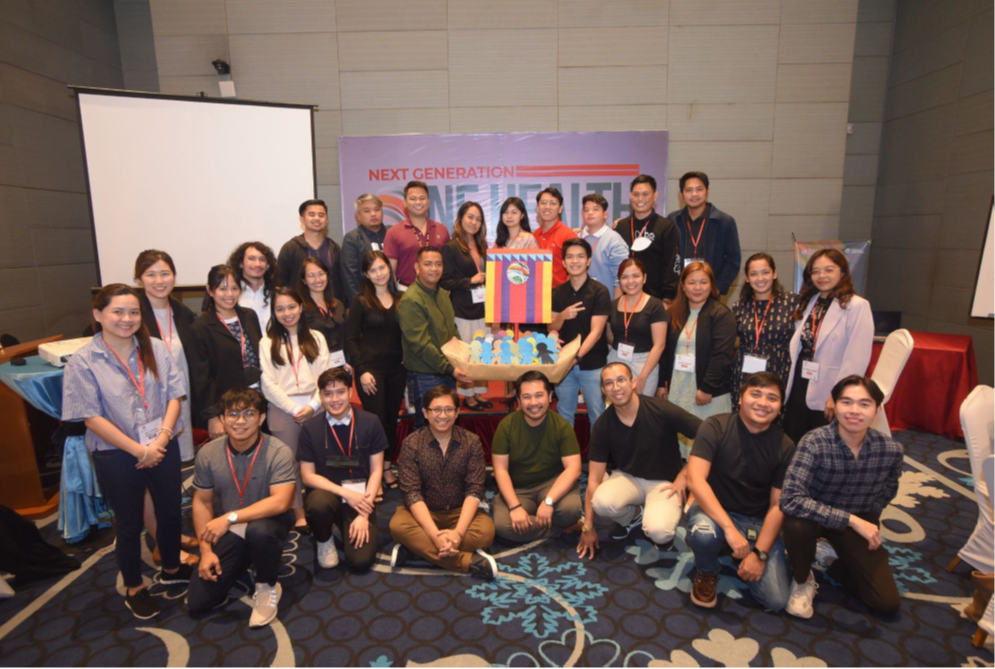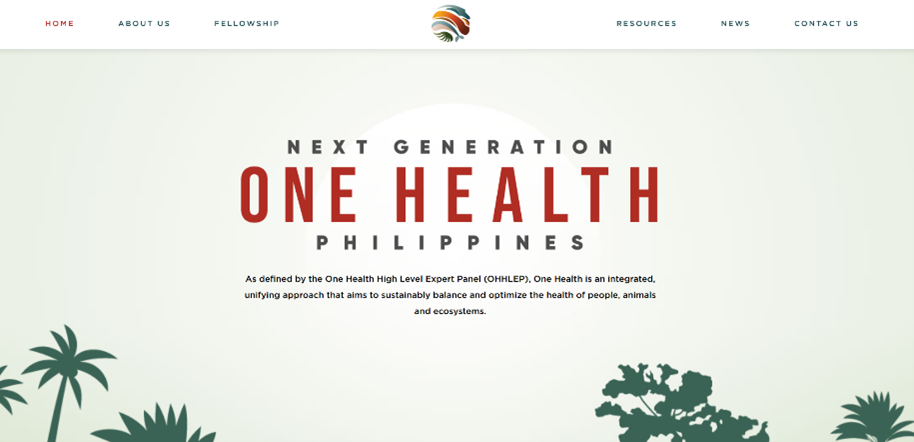
March 27th, 2023
Background
The Philippines is a biodiversity hotspot and a major hub for the global wildlife trade, many of which are identified as carriers of zoonotic pathogens. With support from the International Alliance Against Health Risks in Wildlife Trade, the Planetary and Global Health Program of the St. Luke’s Medical Center College of Medicine established the Next Generation One Health Philippines (NGOHP) Fellowship Program to strengthen domestic capacity for One Health research in tackling wildlife trade and biodiversity loss as drivers of infectious disease emergence.
The fellowship is a year-long program for fifteen fellows from diverse backgrounds. It began with an online introductory course, followed by an in-person workshop in collaborative research, leadership, and communications. Supported by grants and mentors, three teams of five fellows each are currently conducting transdisciplinary One Health research focusing on issues related to wildlife trade and zoonotic spillover prevention. Later in the process, the fellows will participate in One Health dialogues with policymakers and other stakeholders with the goal of translating their findings into real-world change in policy and practice. The three projects currently being implemented by the fellows will be introduced and discussed in the session.
More information on the Next Generation One Health Philippines Fellowship Program.

Research Project 1: A Critical Look into the Existing Policies and Practices on Preventing Zoonotic Risks from Illegal Wildlife Trade in the Philippines
Illegal wildlife trade persists in the Philippines despite the enactment of the Wildlife Act (RA9147) in 2001 and several subsequent supporting directives. These activities tighten the wildlife-human interface and increase the likelihood of zoonotic spillovers, making the country a potential epicenter of future pandemics. The recent pandemic serves as a wake-up call for reevaluating the country’s current laws, policies, and practices on whether zoonotic risks are adequately addressed in the existing regulatory framework. Policy review, interviews with key informants, and focus group discussions will be carried out to identify gaps in policies and practices related to wildlife confiscation and handling. Laboratory identification of pathogens among animals in wildlife rescue centers will also be conducted to identify zoonotic risks related to illegal wildlife trade. Results from this paper can provide additional evidence to strengthen existing measures and introduce new reforms in the areas of biosecurity and wildlife management in the country.
Research Project 2: Exploration of Perspectives, Experiences, and Visions of Local Stakeholders on the One Health Issues in the Philippines
In the Philippines, there is limited evidence on stakeholders’ understanding of and participation in issues regarding illegal wildlife trade, environmental degradation, zoonotic diseases, and the One Health concept as a whole. At present, there has been no study on One Health awareness of various stakeholder groups (e.g., lay people, policymakers, and practitioners), especially in local communities with documented illegal wildlife trade activities. Focusing on four local communities in the provinces of Pampanga, Palawan, Cebu, and Zamboanga del Norte, this mixed methods study will investigate the knowledge, attitudes, and practices around the One Health approach of various stakeholders, capture their lived experiences of issues at the nexus of wildlife and disease, and explore their visions for the future of One Health multi-sectoral collaboration using the Three Horizons Approach.
Research Project 3: Local One Health Index (LOHI): Developing a Transdisciplinary Tool to Assess the One Health Performance at the Subnational Level in the Philippines
This study aims to develop a Local One Health Index (LOHI) that would measure One Health capacity and performance of subnational units in the Philippines. Employing the One Health approach, which recognizes that the health of people is closely connected to the health of animals and our shared environment, this project will utilize transdisciplinary indicators derived from existing global metrics guided by an expert panel and devise an assessment tool for use in local jurisdictions, which will include indicators on wildlife trade and pandemic prevention. The study will also involve preprocessing of publicly available data, index score calculation, and rapid ethnographic assessment of selected sites for field validation of the proposed index.